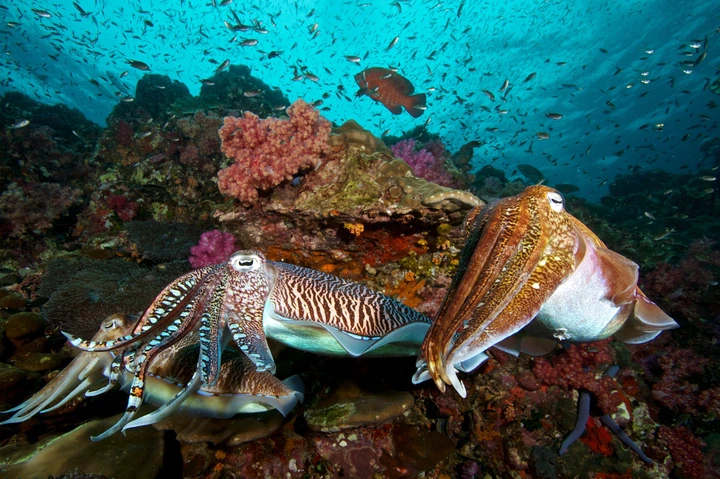Cuttlefish Are Capable of Passing the Marshmallow Test Designed for Children

View pictures in App save up to 80% data.
Cuttlefish are smart. Like, human-level smart. While they’re not quite on par with an adult human with a college degree, studies show that the common cuttlefish can delay gratification, a trait found in creatures we commonly consider intelligent, like primates, corvids, some dog breeds, and humans.
A 2021 study tested the cognitive abilities of cuttlefish with a modified version of the famous Stanford marshmallow experiment. The cuttlefish were divided into tanks with two types of food — a delectable live shrimp and a less delectable raw dead prawn.
Content created by VICE
A door marked with a circle swung open without delay, exposing the prawn inside. In contrast, the door adorned with a triangle would take anywhere from 10 to 130 seconds to open, ultimately disclosing the live shrimp. The final door, featuring a square, remained perpetually shut.
The researchers discovered that cuttlefish exhibited a strong preference for live shrimp, often opting to forgo the immediate availability of dead prawns. They were willing to wait as long as necessary for the triangle door to open, allowing them to access the live shrimp instead.
The cuttlefish recognized that the live shrimp was the tastier and more appealing option, so it decided to bide its time until its favorite treat was within reach.
Different species exhibit the ability to postpone gratification for reasons that are often more intricate than those of the cuttlefish, such as the practice of saving food for future use. In its natural environment, the cuttlefish faces threats from predators while foraging, which might explain its more selective behavior, as it waits for the perfect opportunity to secure food.
“Cuttlefish spend most of their time camouflaging, sitting and waiting, punctuated by brief periods of foraging,” lead author Alexandra Schnell said in Next PageRecommend